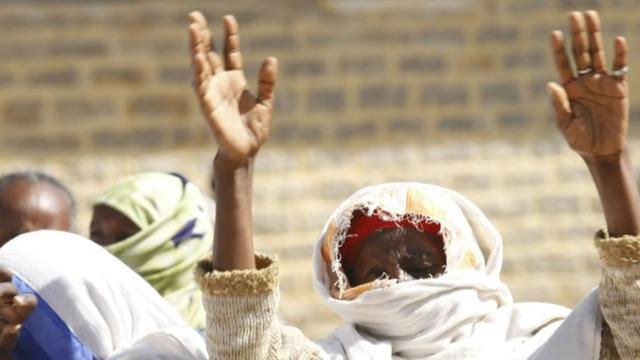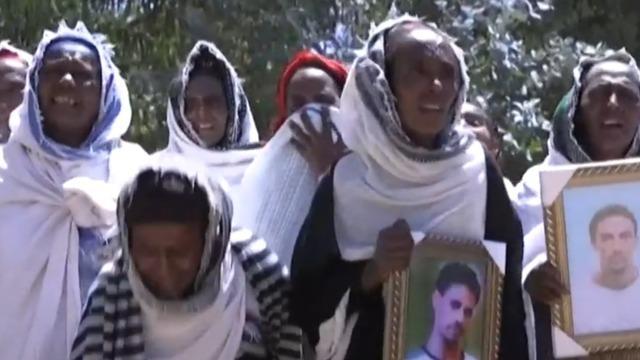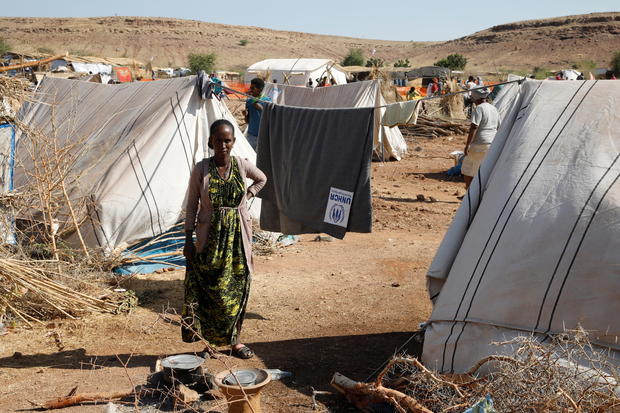▶ Watch Video: U.N. warns sexual violence being used as weapon of war in Ethiopia’s Tigray region
United Nations — Parts of northern Ethiopia’s war-torn Tigray region are on “the brink of famine,” the head of the United Nations said on Monday. Secretary-General Antonio Guterres was the most senior voice in a unified warning cry from a range of U.N. agencies that the grinding conflict remained unchecked, with a devastating impact on civilians.
“The magnitude and gravity of child rights violations taking place across Tigray show no sign of abating, nearly seven months since fighting broke out in northern Ethiopia,” said Henrietta Fore, Executive Director of U.N. children’s agency UNICEF.
She said more than 6,000 unaccompanied or separated children had been identified as needing protection and assistance. Much of the region has remained inaccessible to humanitarian workers, meaning health care, food and other supplies haven’t got in since fighting broke out in November 2020 between Ethiopian forces and ethnic Tigrayan separatists in the region.
For months neighboring Eritrea has sent forces across the border to help Ethiopian government troops battle the Tigrayans, drawing widespread condemnation from the international community as all factions in the fight have been accused of atrocities.
“Women and girls are still being subjected to appalling acts of sexual violence,” Fore said, adding that “adolescent boys speak of fear of recruitment and use by parties to the conflict.”
The U.N. estimates that 1.6 million people have been displaced from their homes by the violence.
“Several areas in Tigray are on the brink of famine,” Guterres said on Monday. “The situation will only keep getting worse unless needed funding is increased and humanitarian access is improved.”
The U.N. humanitarian chief, Under Secretary-General Mark Lowcock, was the most direct with his warning of imminent famine in Ethiopia.
“People need to wake up,” he said. “There is now a risk of a loss of life running into the hundreds of thousands or worse. Businesses have been destroyed. The economy has been destroyed. Crops have been destroyed. Farms have been destroyed.”
Biden administration officials, too, have voiced outrage over the unabated violence — and the inability of the U.N. Security Council to unite around anything stronger than non-binding statements on the conflict.
“We have raised our grave concerns over the reports of human rights violations, the abuses, the atrocities that have taken place in Tigray, and we condemn them in the strongest terms,” U.S. Ambassador to the U.N. Linda Thomas-Greenfield said last month.
“We’ve called on the Eritrean Government to remove its forces from Tigray,” she added.
Eritrea’s Foreign Minister Osman Saleh wrote to the Security Council this week blaming the U.S. for the continued bloodshed, accusing Washington of supporting the Tigray People’s Liberation Movement for 20 years and saying that Eritrea was not to blame.
Samantha Power, who heads the U.S. Agency for International Development (USAID), has held meetings with U.N. officials this month in an effort to get aid into Tigray.
“Children in Tigray deserve better than this,” she tweeted on Monday, sharing an audio clip of Fore’s dire assessment.




































